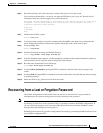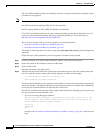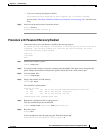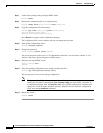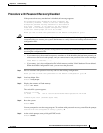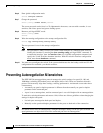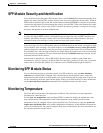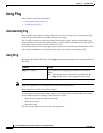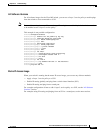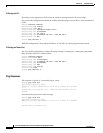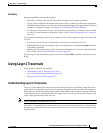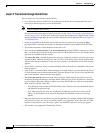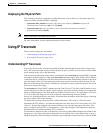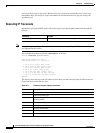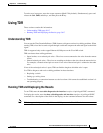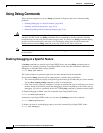
36-11
Cisco ME 3400 Ethernet Access Switch Software Configuration Guide
78-17058-01
Chapter 36 Troubleshooting
Using Ping
All Software Versions
For all software images for the Cisco ME switch, you can use a Layer 3 service policy to enable pings
from the switch to a host connected to a UNI.
Note For a switch running the metro IP access image, IP routing is not enabled by default and does not have
to be enabled to use a Layer 3 service policy.
This example is one possible configuration:
switch# configure terminal
switch(config)# access list 101 permit ip any any
switch(config)# class-map match-any ping-class
switch(config-cmap)# match access-group 101
switch(config-cmap)# exit
switch(config)# policy-map ping-policy
switch(config-pmap)# class ping-class
switch(config-pmap-c)# police 1000000
switch(config-pmap-c)# exit
switch(config-pmap)# exit
switch(config)# int fa0/1
switch(config-if)# service-policy input ping-policy
switch(config-if)# switchport access vlan 2
switch(config-if)# no shut
switch(config-if)# exit
switch(config)# int vlan 2
switch(config-if)# ip address 192.168.1.1 255.255.255.0
switch(config-if)# end
switch# ping 192.168.1.2
Metro IP Access Image
When your switch is running the the metro IP access image, you can use any of these methods:
• Apply a Layer 3 service policy to a UNI.
• Enable IP routing globally and ping from a switch virtual interface (SVI).
• Enable IP routing and ping from a routed port.
For a sample configuration of how to add a Layer 3 service policy to a UNI, see the “All Software
Versions” section.
For examples using IP routing and pinging from an SVI or a routed port, see the next sections.



